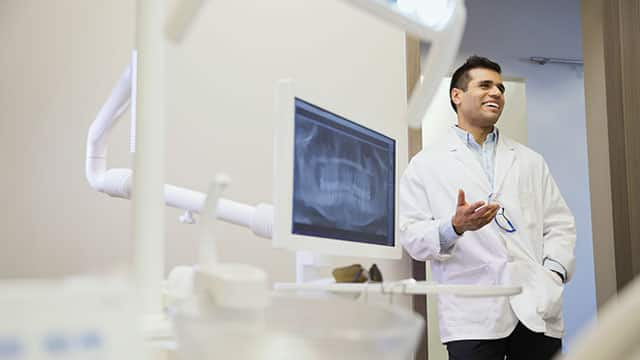What to Eat After a Root Canal
We recommend enjoying soft foods after your procedure to avoid irritation and allow your mouth to recover. But can you eat after a root canal? You’re likely to be hungry after a long dental appointment, but you should avoid eating until numbness from the anesthetic has completely disappeared so that you don’t accidentally bite an area that hasn’t yet regained sensation.
Luckily, there’s a long list of soft foods you can treat yourself to:
- Scrambled eggs, yogurt, or a smoothie for a healthy breakfast
- Mashed potatoes, meatloaf, or shredded-meat for a filling meal
- Ripe, canned, or cooked fruit as a snack (try with soft cheese or peanut butter!)
- Pasta, noodles, quinoa, or couscous provide much-needed substance.
- Cooked vegetables on their own, with hummus, or blended into a luke-warm soup
- Saltines, matzah, or soft bread if you’re in the mood for something easy
- Frozen yogurt or sorbet for a low-fat desert
What Not to Eat After a Root Canal
Deciding what foods to avoid after a dental procedure? Here are two easy rules of thumb to boost your recovery:
- Skip hard and sticky foods that can remove a temporary crown or hurt the recent work done to your mouth.
- Avoid overly hot or cold food and drinks. You may experience temperature sensitivity in your gums or teeth, so it’s best to keep it to mild temperatures. Don’t feel that you have to avoid your favorite cookies fresh from the oven; just let them cool down a bit first!
Here’s a simple overview of foods you shouldn’t eat after a root canal:
- Sticky foods like taffy, gum, and candy that could pull out your temporary crown
- Hard items like candies, peanut brittle, and ice cubes that carry the risk of chipping your tooth
- Very hot or cold items that might irritate sensitive areas or cause pain
Root Canal Treatment Aftercare
So, the root canal is complete. Great job! With the most challenging part out of the way, you can focus on aftercare and prevent other problems down the line.
It’s safe to return to the regular routine of brushing twice daily and flossing once. Still, it’s a good idea to be careful around sensitive areas and not pull the floss up near your temporary filling or crown, or you risk pulling it out.
If you’re experiencing slight discomfort after your procedure, don’t worry, it’s normal for this to persist for a few days. For a quick fix, try rinsing with luke-warm saltwater. Otherwise, your dentist may recommend over-the-counter medications to help with your symptoms.
Important Takeaways
Remember to give yourself the best chance at recovery by eating soft foods and avoiding hard, sticky ones. We recommend staying away from overly hot and cold items not to irritate any sensitive areas. It’s normal to experience discomfort for a few days after the procedure. Deciding what to eat after a root canal can be challenging. Longterm, you’ll be glad to have made informed choices that will have a lasting impact on your dental health and quality of life.
Oral Care Center articles are reviewed by an oral health medical professional. This information is for educational purposes only. This content is not intended to be a substitute for professional medical advice, diagnosis or treatment. Always seek the advice of your dentist, physician or other qualified healthcare provider.
ORAL HEALTH QUIZ
What's behind your smile?
Take our Oral Health assessment to get the most from your oral care routine
ORAL HEALTH QUIZ
What's behind your smile?
Take our Oral Health assessment to get the most from your oral care routine















